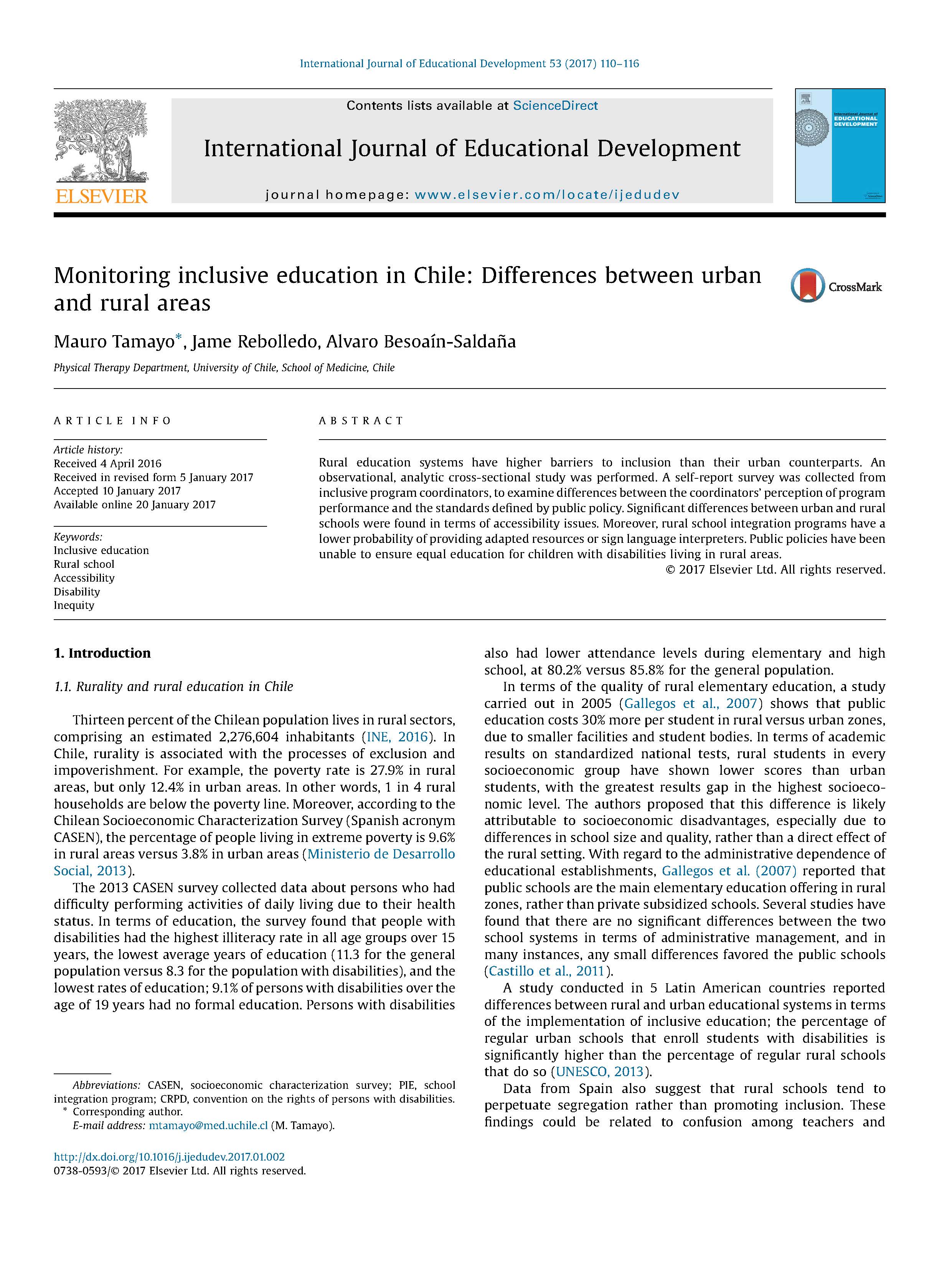Monitoring inclusive education in Chile: Differences between urban and rural areas

Rural education systems have higher barriers to inclusion than their urban counterparts, An observational, analytic cross-sectional study was performed. A self-report survey was collected from inclusive program coordinators, to examine differences between the coordinators’ perception of program performance and the standards defined by public policy. Significant differences between urban and rural schools were found in terms of accessibility issues. Moreover,rural school integration programs have a lower probability of providing adapted resources or sign language interpreters. Public policies have been unable to ensure equal education for children with disabilities living in rural areas.
Year:
Organisation:
International Journal of Education Development
Keywords:
rural area, learning environment, sign language
Marginalized & Vulnerable group:
Persons with disability
Topic:
Inclusive Pedagogy & Practices, Language of Instruction, Physical Learning Environment, Educational Staff Professional Development
Level of Education:
Across the education sector
Type of Resources:
Research & Policy Papers
Country/Region:
Latin America & the Caribbean
Language of Publication:
English